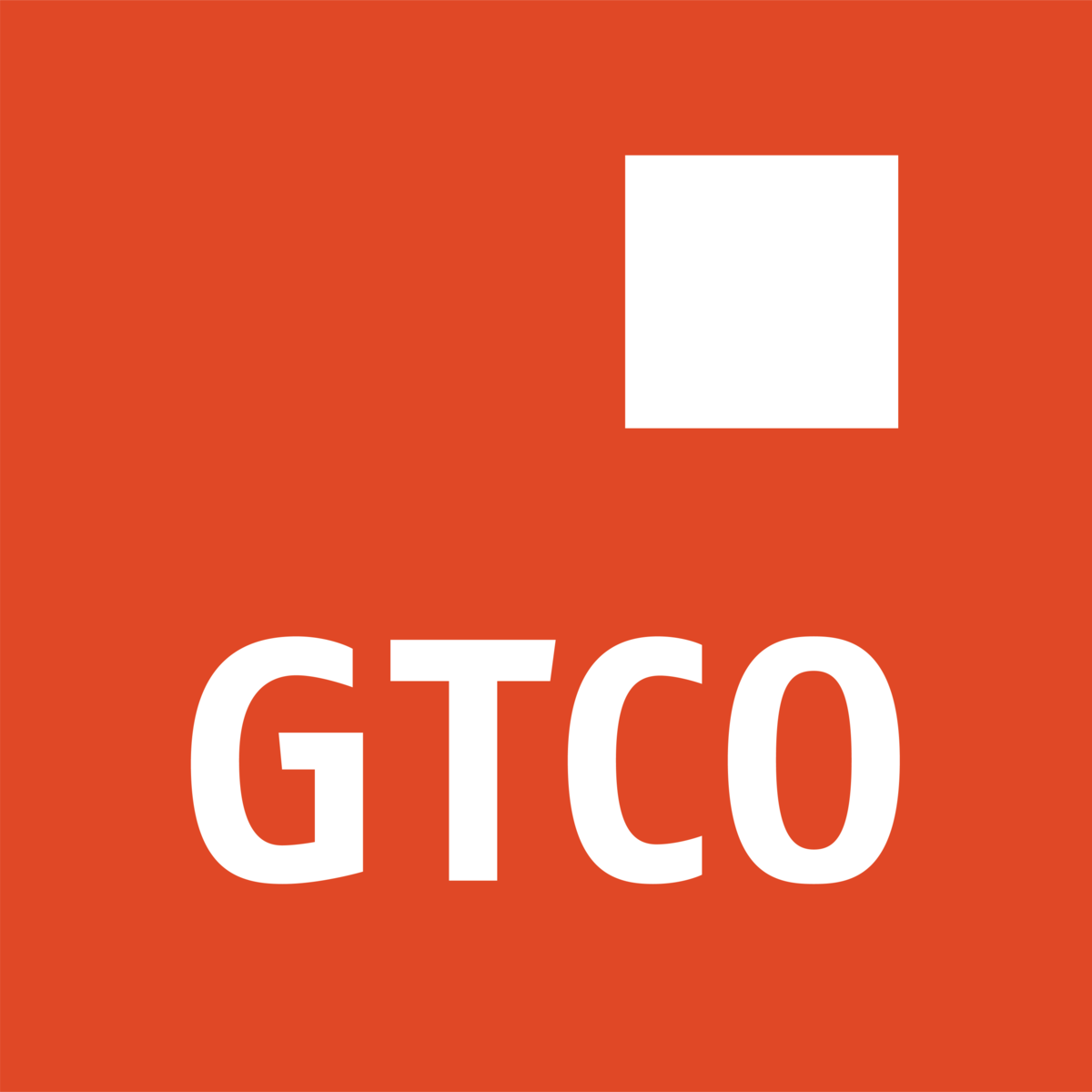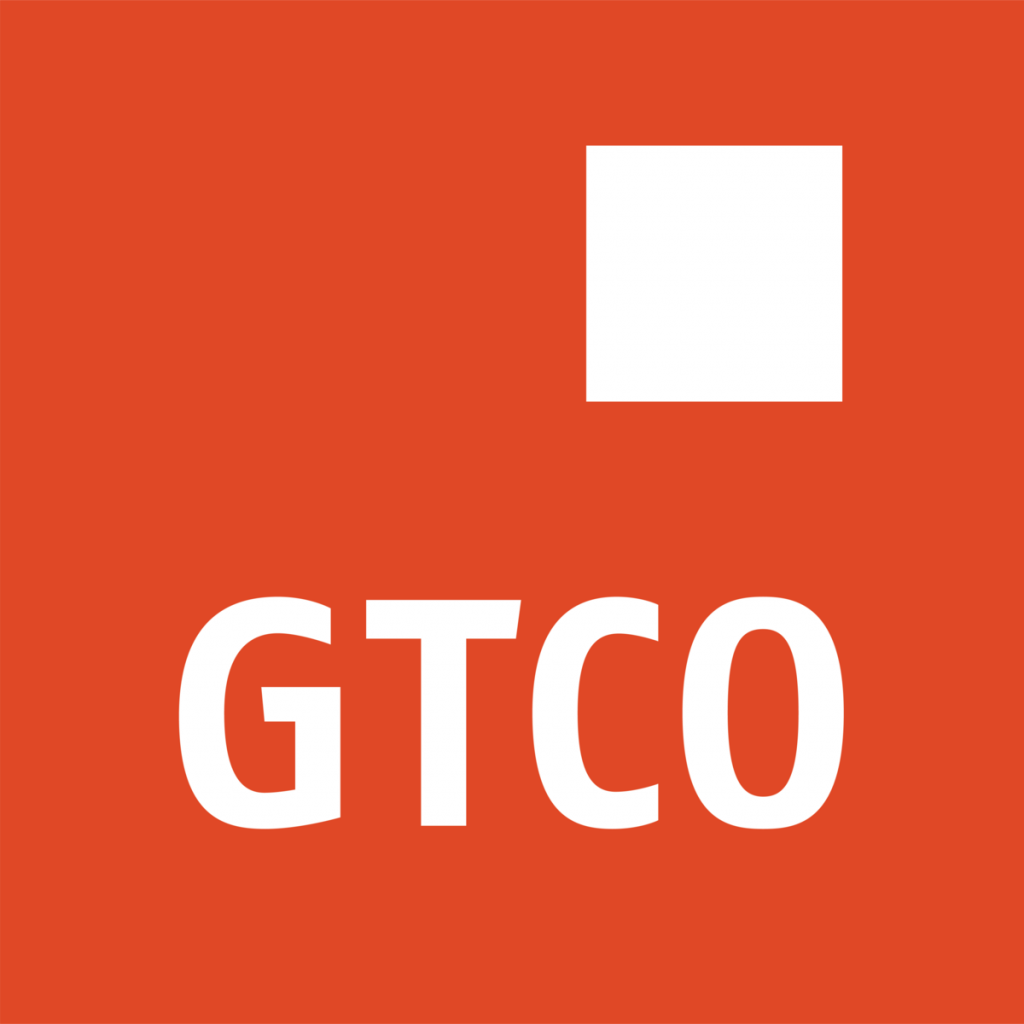brand
Breaking : CBN bows to pressure lifts ban on cement, 42 items and raises dollar supply

 The Central Bank of Nigeria has said it is raising dollar supply in the foreign exchange market, just as it also lifted the ban on 43 items that were previously not qualified for forex at the official market.
The Central Bank of Nigeria has said it is raising dollar supply in the foreign exchange market, just as it also lifted the ban on 43 items that were previously not qualified for forex at the official market.
The decision came after the naira tumbled to 1,050/$ at the parallel market on Thursday, following pressure from international organisations and experts.
The CBN has finally succumbed to pressure and lifted the ban on the importers of 43 items restricted from accessing foreign exchange on its official platform.
It disclosed this in a statement titled, ‘CBN restates commitment to boost liquidity in forex market’, signed by the bank’s Director, Corporate Communications, Isa AbdulMumin, on Thursday.
“Importers of all the 43 items previously restricted by the 2015 circular referenced TED/FEM/FPC/GEN/01/010, and its addendums are now allowed to purchase foreign exchange in the Nigerian foreign exchange market,” the statement said.
The apex bank said it would continue to promote orderliness and professional conduct by all Nigerian foreign exchange market participants to ensure market forces determined exchange rates on a willing buyer – willing seller principle.
It added, “The CBN reiterates that the prevailing foreign exchange rates should be referenced from platforms such as the CBN website, FMDQ and other recognised or appointed trading systems to promote price discovery, transparency, and credibility in the FX rates.
“As part of its responsibility to ensure price stability, the CBN will boost liquidity in the Nigerian foreign exchange market by interventions from time to time. As market liquidity improves, these CBN interventions will gradually decrease.”
The statement said the CBN was committed to accelerating efforts to clear the FX backlog with existing participants and would continue dialogue with stakeholders to address the issue.
It stated, “The CBN has set as one of its goals the attainment of a single FX market. Consultation is ongoing with market participants to achieve this goal. Participants and the general public are to be guided by the above.”
Meanwhile, some Bureau de Change operators who spoke to The PUNCH on Thursday said the dollar traded between 1,025/$ and 1,050/$ in Lagos and Abuja.
A BDC operator in Lagos, Abguadi, said, “The dollar was bought at N1,025/$ and sold at N1,035/$ on Thursday.”
According to another BDC operator, Abdul, “We bought dollar for N1,015/$ and sold it at N1,035/$. The price has been rising.”
A BDC operator, Yusuf, said, “Some BDCs don’t even have access to the forex. Today, we bought the dollar and sold at 1,035/$ and 1,050/$.”
Another BDC operator in Abuja, Ibrahim Yahu, said as of the close of business on Thursday, they were buying at N1.030/$ and selling at 1,045/$.
A forex dealer identified simply as Suraju said, ‘’I buy at N1,030/$ and sell N1,035/$; It is just a difference of N5.’’
However, on the Investor & Exporter forex window, the naira appreciated slightly after closing at 759.20/$ from 766.41/$ on Wednesday.
But the new Governor of the Central Bank of Nigeria, Olayemi Cardoso, also says the new leadership team will review the CBN foreign exchange market policies, corporate governance practices, and monetary policies to reposition the apex bank to achieve its core mandates.
Already, he said the new team members, who resumed fully at the bank a few weeks ago following their confirmation by the National Assembly, were carrying out a comprehensive assessment of the challenges facing the central bank.
According to him, the ongoing assessment of the bank will lead to tweaking or jettisoning of some policies as part of a wide-ranging programme to reform the bank as a catalyst for economic growth and development.
This was contained in a document obtained by our correspondent on Thursday.
The document was titled, ‘Preliminary assessment of challenges facing the Central Bank of Nigeria.’
In the document, Cardoso outlined the challenges facing the CBN, introduced high-level proposals to address reformation challenges while examining the role of a refocused central bank in supporting the economic agenda of President Bola Tinubu.
In the paper, the new CBN governor raised several questions, ranging from how corporate governance failures in the CBN could be addressed, how public and financial systems’ stakeholder confidence could be restored in the autonomy and integrity of the CBN, as well as the need to refocus the central back to its core functions.
He also harped on what should be put in place to revert to evidence-based monetary policies, including the discontinuation of unorthodox monetary policies and foreign currency management, unorthodox use of Ways and Means spending, and developing control limits in the use of Ways and Means in financing public sector deficit.
On the backlog of FX demand, Cardoso emphasised the need for creative financing options for clearing the short to medium-term backlog.
The new central governor also plans to limit the CBN’s fiscal side interventions while proposing responses to addressing inflation and price stability issues.
Cardoso said, “These problem statements need in-depth review by the new Central Bank leadership team to determine what mechanisms are currently working, what can be tweaked or dispensed with and what new tools need to be introduced.”
On how the CBN can be refocused to support economic growth, he said, “The economic policy proposals of the administration identify a set of fiscal reforms and growth targets that will achieve $1.0tn GDP within eight years. In reviewing selected BRICS and MINT countries with large populations and similar developmental characteristics as Nigeria, it is interesting to identify macroeconomic indices that point to Nigeria’s economic trajectory, given the faithful implementation of the proposed economic reforms. In economies bigger than $1.0tn, these indicators include moderate inflation, sizable foreign reserves, and the capacity to rebound from a cyclical economic downturn quickly.”
He added, “Much has been made of past CBN forays into development financing, such that the lines between monetary policy and fiscal intervention have blurred. In refocusing the CBN to its core mandate, there is a need to pull the CBN back from direct development finance interventions into more limited advisory roles that support economic growth.”
He listed the advisory roles as the CBN acting as a catalyst in the propagation of specialised institutions and financial products that support emerging sectors of the economy, facilitating new regulatory frameworks to unlock dormant capital in land and property holdings, accelerating access to consumer credit and expand financial inclusion to the masses; de-risking instrumentation to increase private sector investment in housing, textiles and clothing, food supply chain, healthcare, and educational supplies; and exercising the CBN’s convening power to bring critical multilateral and international stakeholder participation in government and private sector initiatives.
In conclusion, Cardoso said, “It must be emphasised that CBN does not have a magic wand that can be waved at the current economic challenges. The problems facing the bank are large and complex. However, with focused leadership and sustained reforms, it is expected that over time, the country will see gains open economic spaces, attract new investments, create employment, and give our hardworking and talented compatriots an opportunity for a more prosperous future”.
Manufacturers back FG
Speaking exclusively with The PUNCH, the Director-General of the Manufacturers Association of Nigeria, Segun Ajayi-Kadir, commended the decision made by the CBN to lift the ban on imports of the blacklisted items.
According to him, about 200 association members have been adversely affected by the ban that Emefiele imposed.
He said, “We commend the CBN Governor for taking a very pragmatic and far-sighted decision on this matter. You will recall that when the last CBN governor imposed this list of items that are not valid for forex, the association indicated that it was not consulted, and that it was ill-advised. It was ill-advised in that the CBN did not correctly assess the relevance of those items.
“Some of those items represent raw materials that are not locally available, and when that was done, it put more than 200 of our members in jeopardy. It put their survival in jeopardy. Many of them suffered unprecedented low returns in their activities. We indicated that the affected operators needed to be consulted.”
Ajayi-Kadir, who warned that the apex bank had no business meddling in issues bordering on fiscal policy, demanded more reviews to be done to remove more bottlenecks that were imposed on manufacturers by the previous CBN leadership.”
Reacting, the President of the All Farmers Association of Nigeria, Kabir Ibrahim, said removing the forex ban on the items might not influence the seamless importation of food as countries were battling to achieve food sufficiency.
In a telephone interview, the president noted that the festive period would prove effective if the new policy is appropriate or not.
He said, “It is premature to say what will happen as this liberalisation does not mean seamless importation of goods and services as the entire global food system is going through challenges.
“There is no magic wand to stave off the current food inflation rate in Nigeria and it is pretty unwise to purchase grains. For instance, it will be at cross-purposes with any food pricing protocol.
“We should tarry awhile before making definite forecasts as to what will happen between now and Christmas.”
Speaking with The PUNCH, the Chief Executive Officer of the Centre for Promotion of Private Enterprise, Dr Muda Yusuf, said it was a welcome decision of the CBN to discontinue the forex exclusion policy on the 43 items. It is a move in the right direction. It is part of the policy normalisation process.
Yusuf said, “The exclusion of the 43 items was one of the drivers of distortions in the forex market. The exclusion of the items also contributed to the persistent divergence in rates between the official window and the parallel market.
“The exclusion also conflicted with extant trade policy as the items were not under import prohibition in the first place. It was an example of lack of policy coordination under the previous administration.”
Yusuf further stated that the new directive would improve transparency and disclosures in foreign exchange transactions.
Meanwhile, he noted that the CBN should avoid market suppression tendencies, especially outside the I&E window.
He stressed that all policy impediments to forex inflows should be removed.
He stated, “The fiscal authorities should continually monitor the economic landscape to shape the character of fiscal policy measures to regulate imports in line with comparative advantage principles.”
Meanwhile, he added, “We need to worry about the risk of an import surge and also need to upscale the use of fiscal policy measures to boost domestic production and productivity.”
The President, Association of Bureaux De Change Operators of Nigeria, Dr Aminu Gwadabe, said generally, it was a booster aimed at boosting confidence and eliminating uncertainties in the market.
He said, “It entails reforms, compliance with official market rates and liquidity interventions. We at ABCON will continue to partner with the apex bank in achieving its set goals.
“The unbanning of the 43 items will deepen the market and stimulate bilateral trade and inward-looking industrialisation strategies.”
He added, “My call to the CBN is to ensure speedy implementations of the policies. To enhance the buffers, the CBN should pursue a paradigm shift from demand to supply measures to boost the needed liquidity in the market.”
Gwadabe said the CBN should emphasise intervention in the retail end sector where the spikes were most pervasive through the effective pass-through of the BDCs to close the gaps between the official and unofficial exchange rates.
brand
GTCO Plc Becomes the 1st Financial Services Institution in West Africa to Achieve Listing and Trading of its Ordinary Shares on the London Stock Exchange

 Guaranty Trust Holding Company Plc (GTCO Plc), Africa’s leading and most profitable Financial Services Group, has recorded a significant milestone in its growth and expansion journey with the successful admission of its Ordinary Shares to the Equity Shares (International Commercial Companies Secondary Listing) category of the Official List of the Financial Conduct Authority (FCA) and to trading on the main market for listed securities of the London Stock Exchange.
Guaranty Trust Holding Company Plc (GTCO Plc), Africa’s leading and most profitable Financial Services Group, has recorded a significant milestone in its growth and expansion journey with the successful admission of its Ordinary Shares to the Equity Shares (International Commercial Companies Secondary Listing) category of the Official List of the Financial Conduct Authority (FCA) and to trading on the main market for listed securities of the London Stock Exchange.
This historic achievement makes GTCO Plc, the 1stFinancial Services Institution in West Africa to dual list its Ordinary Shares on both the Nigerian and London stock exchanges, and subject to certain criteria, it is expected that the Shares will be transferrable between the two exchanges.
The admission follows the successful pricing of its fully marketed offering (The Offering) on the London Stock Exchange to raise gross proceeds of $105million in exchange for 2.29 billion of new ordinary shares in the company, which was supported by a strong book of high-quality, long-term institutional investors.
Concurrent with the Offering, the Company also gave notice of its intention to cancel the listing of its existing GDRs on the certificates representing certain securities (depositary receipts) category of the Official List of the United Kingdom Financial Conduct Authority (“FCA”) and the admission to trading of GDRs on the London Stock Exchange’s main market for listed securities.
Building on the momentum of the successful first tranche of its equity capital raise programme in July 2024, which secured ₦209 billion, GTCO will deploy the proceeds from the Offering to strengthen its capital base, meet its recapitalization target, and fund strategic expansion across high-growth markets and priority sectors within and outside Nigeria.
It is expected that Admission and unconditional dealing in the Shares will become effective on or before 8.00 a.m. (UK time) on 9 July 2025 under the ticker “GTHC”. Following the cancellation of the GDRs listing, the Company intends to change the ticker symbol for the Shares from “GTHC” to “GTCO” and will issue a separate announcement in due course to that effect.
Commenting on the LSE Listing, the Group Chief Executive Officer of Guaranty Trust Holding Company Plc, Mr. Segun Agbaje, said: “Today marks a major milestone—not just for GTCO, but for the future we see for African financial institutions on the global stage. We are incredibly proud to be the 1stFinancial Services Institution in West Africa to list our ordinary shares on London Stock Exchange’s main market for listed securities, and even more honored by the trust placed in us by the investing community. For us, this was not just about raising capital. It was about validating the strength of our franchise, the clarity of our strategy, and the discipline with which we execute.”
He further said; “I would like to thank everyone who made this possible—our advisors and legal teams, our longstanding shareholders, the regulators both in Nigeria and in the UK, as well as the Nigerian government for creating an environment that supports our bold ambition and vision to be Africa’s leading financial services institution.”
GTCO’s fully marketed offering attracted long-term institutional capital, reflecting investor confidence in the Group’s fundamentals, governance, and strategic outlook. It also signals improving market sentiment, buoyed by ongoing economic reforms by the Federal Government and a return to traditional orthodox monetary policy by the Central Bank of Nigeria, which have gone a long way to stabilising the macroeconomic environment and gradually restoring investor confidence in Nigeria’s long-term prospects.
brand
ZENITH BANK RETAINS TOP SPOT AS NUMBER ONE BANK IN NIGERIA BY TIER-1 CAPITAL FOR THE SIXTEENTH CONSECUTIVE YEAR IN THE 2025 TOP 1000 WORLD BANKS’ RANKING

-
 Zenith Bank Plc has retained its position as the Number One Bank in Nigeria by Tier-1 Capital forthe sixteenth consecutive year, in the 2025 Top 1000 World Banks’ Rankings, published by TheBanker,FinancialTimesGroup,UnitedKingdom.ThisrankingplacesZenithBankPlcasthe581st Bank globally, with a Tier-1 Capital of $2 billion.The global rankings, published inthe July 2025 edition of TheBanker, was based on the 2024year-end Tier-1capital ofbanks. Thisis theprimary basisformost internationalorganizations’assessments of banks.Commenting on this achievement, the Group Managing Director/CEO of Zenith Bank Plc, Dame(Dr.) Adaora Umeoji, OON, said, “We are thrilled to have retained our position yet again as theNumber One Bank in Nigeria by Tier-1 capital for the 16th consecutive year. This achievement isa reflection of the bank’s robust financial performance, prudent risk management and steadfastdedication to delivering exceptional value to our customers and stakeholders”. She thanked theFounder and Chairman, Jim Ovia, CFR, for his visionary and transformative leadership which hasplayedapivotalroleincultivatingaresilientandthrivinginstitution.Shealsoexpressedherdeepest appreciation to the bank’s esteemed customers for their continued loyalty to the Zenithbrand, the Board for the sound corporate governance, and the staff for their relentless & tirelessefforts in ensuring the bank’s success.Tier-1 Capital describes capital adequacy, the core measure of a bank’s financial strength from aregulator’sperspective.Accordingtotheranking,Tier-1Capital,asdefinedbytheBankforInternational Settlements(BIS) guidelines,includes loss-absorbingcapital, i.e.,common stock,disclosed reserves, retained earnings, and minority interests in the equity of subsidiaries that areless than whollyowned. A strongTier-1 capital ratio boostsinvestor and depositorconfidence,indicating the Bank is well-capitalised and financially stable.Accordingtotheaudited financialresultsforthe2024financialyearpresented totheNigerianExchange (NGX), the Bank recorded a double-digit growth of 86% in gross earnings, increasingfrom N2.13 trillion in 2023 to N3.97 trillion in 2024. This growth was driven by a 138% increase ininterest income, supported by investment in high-yield government securities, and growth in theBank’s loan book. Zenith Bank’s profit before tax (PBT) rose by 67%, reaching N1.3 trillion in 2024from N796 billion in 2023. This performance saw the bank record an unprecedented total dividendpayout of N195.67 billion at N5.00 per ordinary share in the 2024 financial year.Zenith Bank’s track record of excellent performance has continued to earn the brand numerousawards including being recognised as the Bank of the Year (Nigeria) in The Banker’s Bank of theYear Awards for 2020, 2022 and 2024; Best Bank in Nigeria from 2020 to 2022, 2024 and 2025,in the Global Finance World’s Best Banks Awards; Best Bank for Digital Solutions in Nigeria in the
Zenith Bank Plc has retained its position as the Number One Bank in Nigeria by Tier-1 Capital forthe sixteenth consecutive year, in the 2025 Top 1000 World Banks’ Rankings, published by TheBanker,FinancialTimesGroup,UnitedKingdom.ThisrankingplacesZenithBankPlcasthe581st Bank globally, with a Tier-1 Capital of $2 billion.The global rankings, published inthe July 2025 edition of TheBanker, was based on the 2024year-end Tier-1capital ofbanks. Thisis theprimary basisformost internationalorganizations’assessments of banks.Commenting on this achievement, the Group Managing Director/CEO of Zenith Bank Plc, Dame(Dr.) Adaora Umeoji, OON, said, “We are thrilled to have retained our position yet again as theNumber One Bank in Nigeria by Tier-1 capital for the 16th consecutive year. This achievement isa reflection of the bank’s robust financial performance, prudent risk management and steadfastdedication to delivering exceptional value to our customers and stakeholders”. She thanked theFounder and Chairman, Jim Ovia, CFR, for his visionary and transformative leadership which hasplayedapivotalroleincultivatingaresilientandthrivinginstitution.Shealsoexpressedherdeepest appreciation to the bank’s esteemed customers for their continued loyalty to the Zenithbrand, the Board for the sound corporate governance, and the staff for their relentless & tirelessefforts in ensuring the bank’s success.Tier-1 Capital describes capital adequacy, the core measure of a bank’s financial strength from aregulator’sperspective.Accordingtotheranking,Tier-1Capital,asdefinedbytheBankforInternational Settlements(BIS) guidelines,includes loss-absorbingcapital, i.e.,common stock,disclosed reserves, retained earnings, and minority interests in the equity of subsidiaries that areless than whollyowned. A strongTier-1 capital ratio boostsinvestor and depositorconfidence,indicating the Bank is well-capitalised and financially stable.Accordingtotheaudited financialresultsforthe2024financialyearpresented totheNigerianExchange (NGX), the Bank recorded a double-digit growth of 86% in gross earnings, increasingfrom N2.13 trillion in 2023 to N3.97 trillion in 2024. This growth was driven by a 138% increase ininterest income, supported by investment in high-yield government securities, and growth in theBank’s loan book. Zenith Bank’s profit before tax (PBT) rose by 67%, reaching N1.3 trillion in 2024from N796 billion in 2023. This performance saw the bank record an unprecedented total dividendpayout of N195.67 billion at N5.00 per ordinary share in the 2024 financial year.Zenith Bank’s track record of excellent performance has continued to earn the brand numerousawards including being recognised as the Bank of the Year (Nigeria) in The Banker’s Bank of theYear Awards for 2020, 2022 and 2024; Best Bank in Nigeria from 2020 to 2022, 2024 and 2025,in the Global Finance World’s Best Banks Awards; Best Bank for Digital Solutions in Nigeria in the -
Euromoney Awards 2023; and being listed in the World Finance Top 100 Global Companies in2023.Further recognitions include Best Commercial Bank, Nigeria for four consecutive years from 2021to2024intheWorldFinanceBankingAwardsandMostSustainableBank,NigeriaintheInternationalBanker2023and2024BankingAwards.Additionally,ZenithBankwasacknowledged as the Best Corporate Governance Bank, Nigeria, in the World Finance CorporateGovernance Awards from 2022 to 2024 and ‘Best in Corporate Governance’ Financial Services’Africa for four consecutive years from 2020 to 2023 by the Ethical Boardroom.The Bank’s commitment to excellence saw it being named the Most Valuable Banking Brand inNigeria in the Banker Magazine Top 500 Banking Brands for 2020 and 2021, Bank of the Year2023 and 2024 at the BusinessDayBanks and Other Financial Institutions (BAFI) Awards, andRetail Bank of the Year for three consecutive years from 2020 to 2022 and in 2024 at the BAFIAwards.TheBankalsoreceivedtheaccoladesofBestCommercialBank,NigeriaandBestInnovation in Retail Banking, Nigeria, in the International Banker 2022 Banking Awards.ZenithBankwasalsonamedMostResponsibleOrganisationinAfrica,BestCompanyinTransparency and Reporting and Best Company in Gender Equality and Women Empowermentat the SERAS CSR Awards Africa 2024; Bank of the Year 2024 by ThisDay Newspaper; Bank oftheYear2024byNewTelegraphNewspaper;andBestinMSMETradeFinance,2023byNairametrics. The Bank’s Hybrid Offer was also adjudged ‘Rights Issue/ Public Offer of the Year’at the Nairametrics Capital Market Choice Awards 2025
brand
Body of Bank CEOs Delivers Critical Relief to Flood Victims in Niger State, Pledges Continued Support

 Pix 1 L-R: Registrar & Chief Executive of the Chartered Institute of Bankers of Nigeria (CIBN) Akin Morakinyo; Managing Director and Chief Executive Officer of Keystone Bank Limited, Mr. Hassan Imam; Group Managing Director/Chief Executive, Zenith Bank, Dame (Dr.) Adaora Umeoji; The Executive Governor of Niger State, His Excellency, Governor Mohammed Umaru Bago; Chairman, Body of Bank CEOs and Group Managing Director/CEO, United Bank for Africa (UBA) Plc, Oliver Alawuba; Managing Director Taj Bank Mr. Hamid Joda; and Secretary to the Government of Niger State (SSG), Alhaji Abubakar Usman during the donation of relief materials from the Body of Bank CEOs in Nigeria, aimed at supporting victims of the recent devastating floods in Mokwa Local Government Area held at the Niger State House in Abuja at the weekend.
Pix 1 L-R: Registrar & Chief Executive of the Chartered Institute of Bankers of Nigeria (CIBN) Akin Morakinyo; Managing Director and Chief Executive Officer of Keystone Bank Limited, Mr. Hassan Imam; Group Managing Director/Chief Executive, Zenith Bank, Dame (Dr.) Adaora Umeoji; The Executive Governor of Niger State, His Excellency, Governor Mohammed Umaru Bago; Chairman, Body of Bank CEOs and Group Managing Director/CEO, United Bank for Africa (UBA) Plc, Oliver Alawuba; Managing Director Taj Bank Mr. Hamid Joda; and Secretary to the Government of Niger State (SSG), Alhaji Abubakar Usman during the donation of relief materials from the Body of Bank CEOs in Nigeria, aimed at supporting victims of the recent devastating floods in Mokwa Local Government Area held at the Niger State House in Abuja at the weekend.
 The Executive Governor of Niger State, His Excellency, Governor Mohammed Umaru Bago; Chairman, Body of Bank CEOs and Group Managing Director/CEO, United Bank for Africa (UBA) Plc, Oliver Alawuba during the donation of relief materials from the Body of Bank CEOs in Nigeria, aimed at supporting victims of the recent devastating floods in Mokwa Local Government Area held at the Niger State House in Abuja at the weekend
The Executive Governor of Niger State, His Excellency, Governor Mohammed Umaru Bago; Chairman, Body of Bank CEOs and Group Managing Director/CEO, United Bank for Africa (UBA) Plc, Oliver Alawuba during the donation of relief materials from the Body of Bank CEOs in Nigeria, aimed at supporting victims of the recent devastating floods in Mokwa Local Government Area held at the Niger State House in Abuja at the weekend
Pix 3: L-R: Managing Director and Chief Executive Officer of Keystone Bank Limited, Mr. Hassan Imam; Group Managing Director/Chief Executive, Zenith Bank, Dame (Dr.) Adaora Umeoji; The Executive Governor of Niger State, His Excellency, Governor Mohammed Umaru Bago; Chairman, Body of Bank CEOs and Group Managing Director/CEO, United Bank for Africa (UBA) Plc, Oliver Alawuba; and Managing Director Taj Bank Mr. Hamid Joda, during the donation of relief materials from the Body of Bank CEOs in Nigeria, aimed at supporting victims of the recent devastating floods in Mokwa Local Government Area held at the Niger State House in Abuja at the weekend.
In a heartwarming display of corporate social responsibility and solidarity, a consortium of Nigerian Bank CEOs, has pledged significant support to alleviate the suffering of flood victims in Niger State
The Executive Governor of Niger State, His Excellency, Governor Mohammed Umaru Bago on Saturday in Abuja received relief materials from the Body of Bank CEOs led by its Chairman, Mr Oliver Alawuba.
The gesture is aimed at supporting victims of the recent devastating floods in Mokwa Local Government Area of the state.
Oliver Alawuba who is also the Group Managing Director/CEO of United Bank for Africa(UBA), led the delegation to the Niger State Government house Abuja, where they presented essential relief items, including bags of rice, beverages, vegetable oil, and mattresses, valued at millions of naira.
The devastating floods, which have affected thousands of families in the region, have prompted the banking community to come together in a show of empathy and support to those displaced and affected by the disaster.
In his address, Alawuba expressed the banking industry’s deep sympathy for the affected communities and reaffirmed their dedication to sustainable support while pointing out that the gesture underscores the banking sector’s commitment to corporate social responsibility and humanitarian intervention especially in times of crisis.
He said, “Today, we stand with the people of Niger State in their time of need. We want you to know that we feel your pain and we give you our firm resolve to assist in rebuilding lives. This donation is just the beginning; we pledge continued collaboration with the Niger State Government to ensure long-term recovery and resilience.”
Other top CEOs and executives at the presentation included by the Group Managing Director/Chief Executive of Zenith Bank, Dame (Dr.) Adaora Umeoji, the Registrar and Chief Executive of the Chartered Institute of Bankers of Nigeria (CIBN), Mr. Akin Morakinyo, Managing Director and Chief Executive Officer of Keystone Bank Limited, Mr. Hassan Imam; Managing Director Taj Bank Mr. Hamid Joda; Secretary to the Government of Niger State (SSG), Alhaji Abubakar Usman senior government officials, banking executives, and media representatives, marking a significant step in public-private collaboration for humanitarian relief.
Governor Bago, who received the relief materials on behalf of the state, commending the banking sector for its timely intervention.
“This gesture reinforces the critical role of private-sector partnerships in disaster response,” Governor Bago stated. “We are grateful for this support and look forward to deeper collaboration in safeguarding our communities against future challenges. On behalf of the good people of Niger State, particularly the affected families in Mokwa, I extend our sincerest thanks for this timely and compassionate intervention,” Bago stated.
“The recent floods in the state brought immense hardship to the people, displacing families, destroying livelihoods, and disrupting communities and the banking sector, under the leadership of Alawuba and his esteemed colleagues, has demonstrated that beyond financial stewardship, they are true partners in national development and humanitarian service.
This donation is not just about the physical items; it is a symbol of hope, resilience, and the unwavering support of Nigeria’s financial institutions in times of need. It reassures our people that they are not forgotten, the governor stated.
…
-

 news5 years ago
news5 years agoUPDATE: #ENDSARS: CCTV footage of Lekki shootings intact – Says Sanwo – Olu
-

 news2 years ago
news2 years agoEnvironmental Pollutions : OGONI COMMUNITY CRIES OUT, THREATENS TO SHUT DOWN FIRSTBANK,SHELL OIL COMPANY OPERATIONS FOR NOT PAYING COURT AWARD
-

 lifestyle5 years ago
lifestyle5 years agoFormer Miss World: Mixed reactions trail Agbani Darego’s looks
-

 health4 years ago
health4 years agoChairman Agege LG, Ganiyu Egunjobi Receives Covid-19 Vaccines
-

 lifestyle4 years ago
lifestyle4 years agoObateru: Celebrating a Quintessential PR Man at 60
-

 health5 years ago
health5 years agoUPDATE : Nigeria Records 790 new cases of COVID-19
-

 politics3 months ago
politics3 months agoBreaking : Oborevwori , Okowa others dumps PDP, defects to APC
-

 news2 months ago
news2 months agoBREAKING: Tinubu swears in new NNPCL Board


